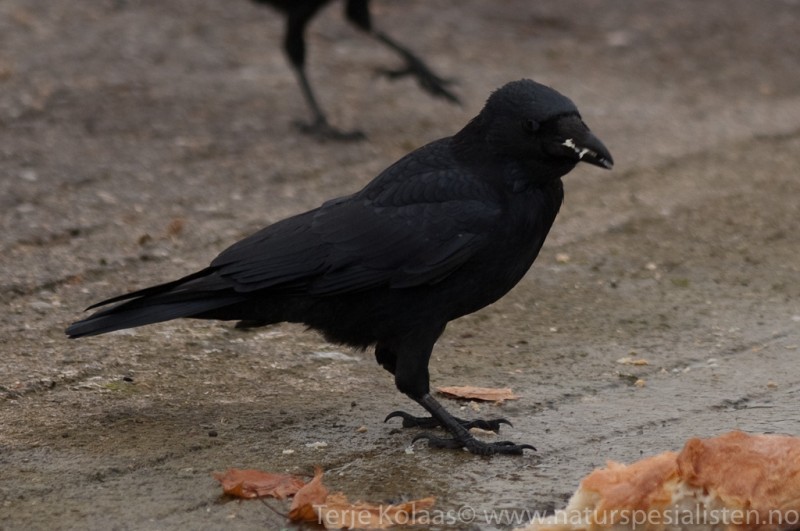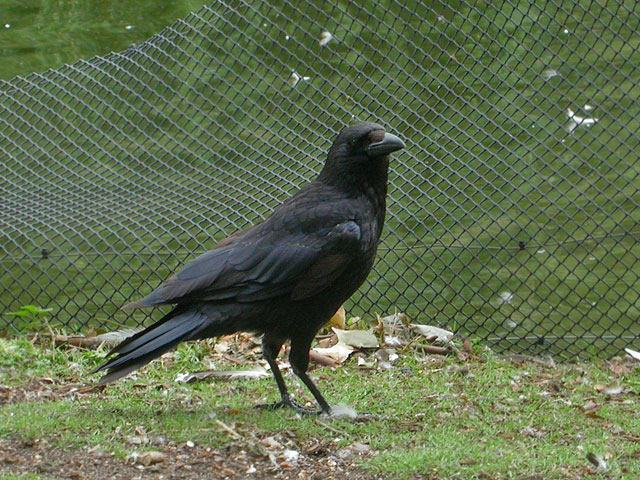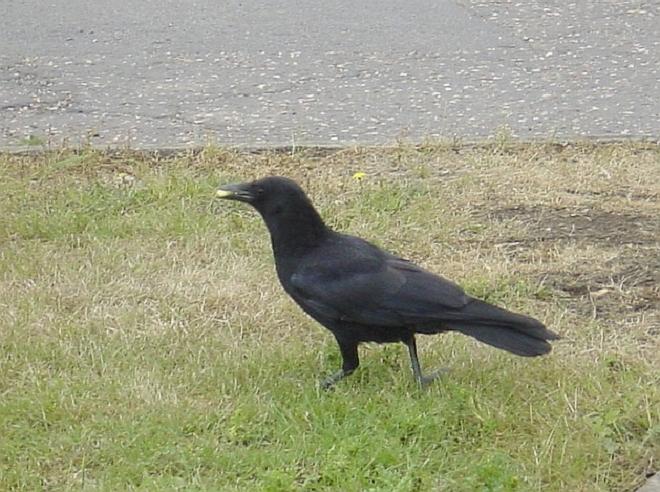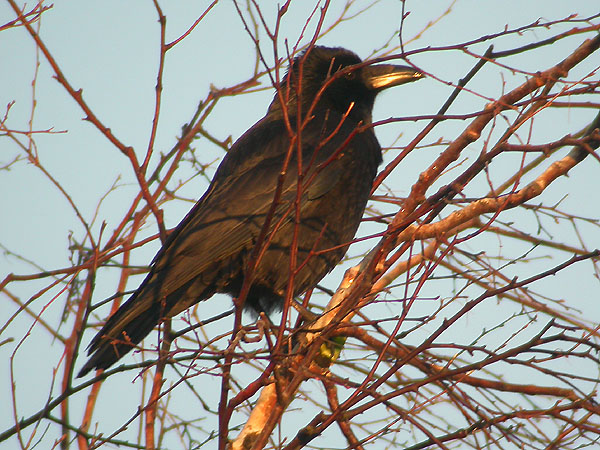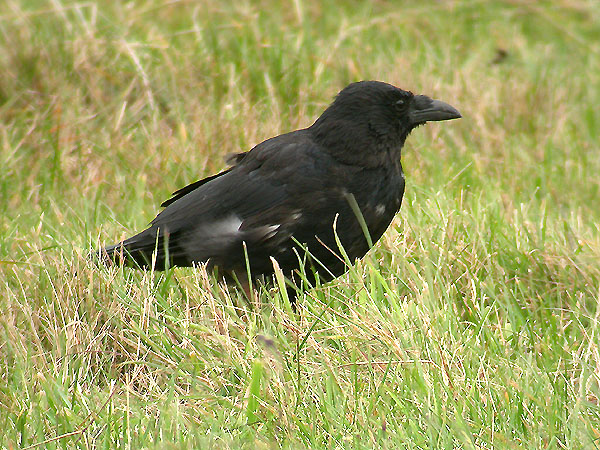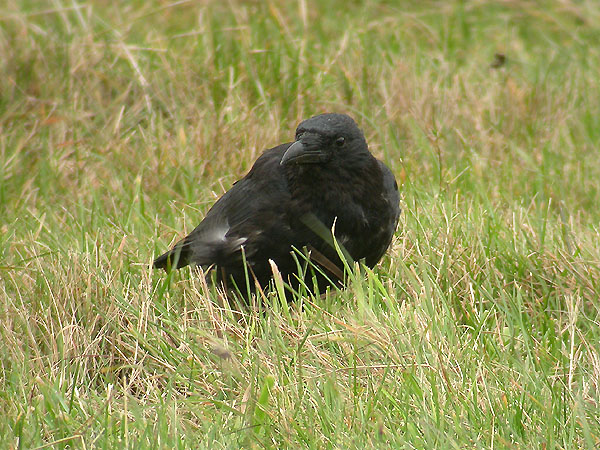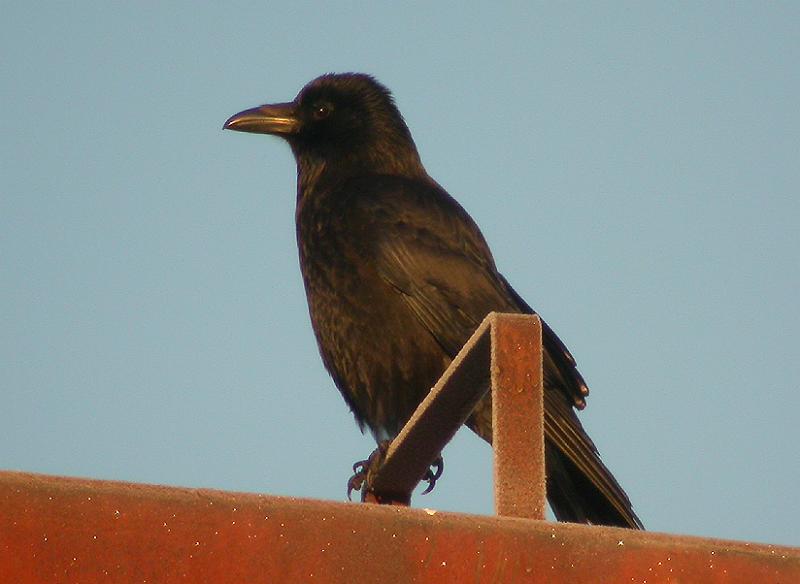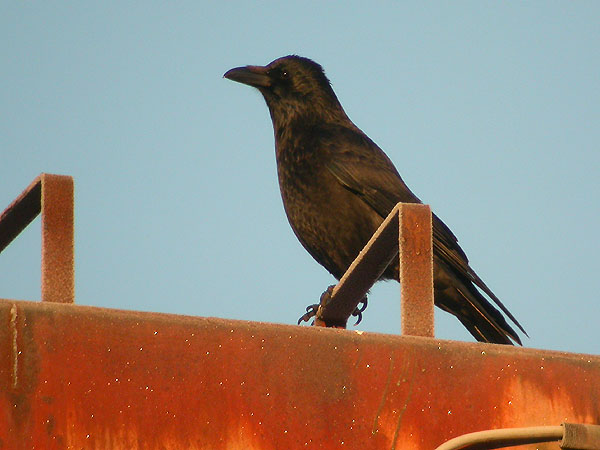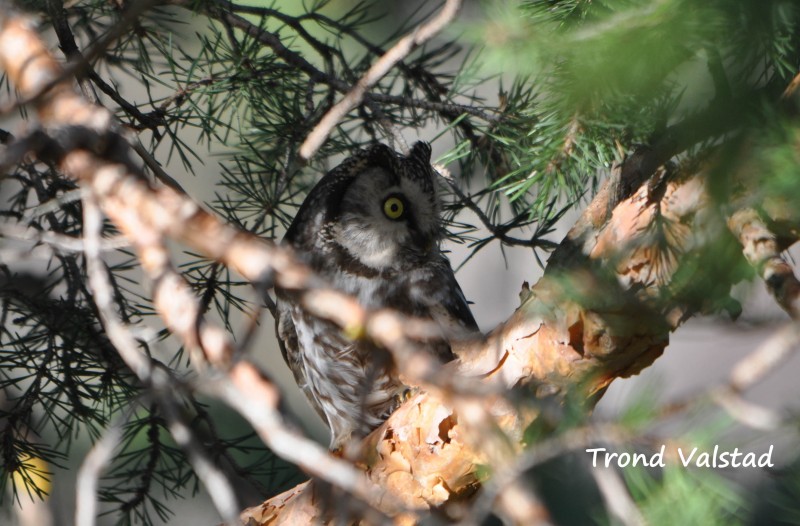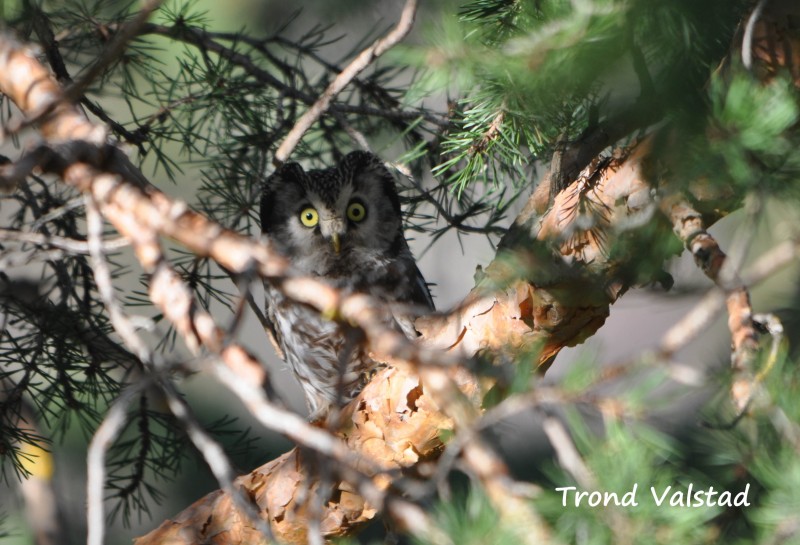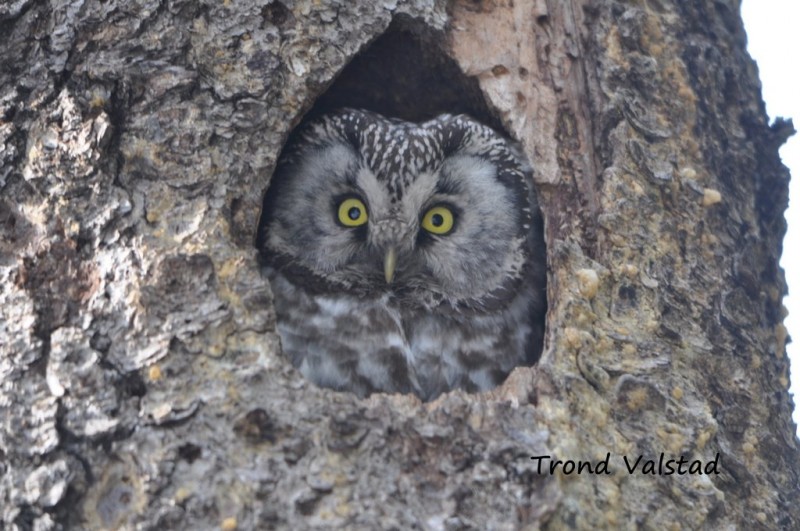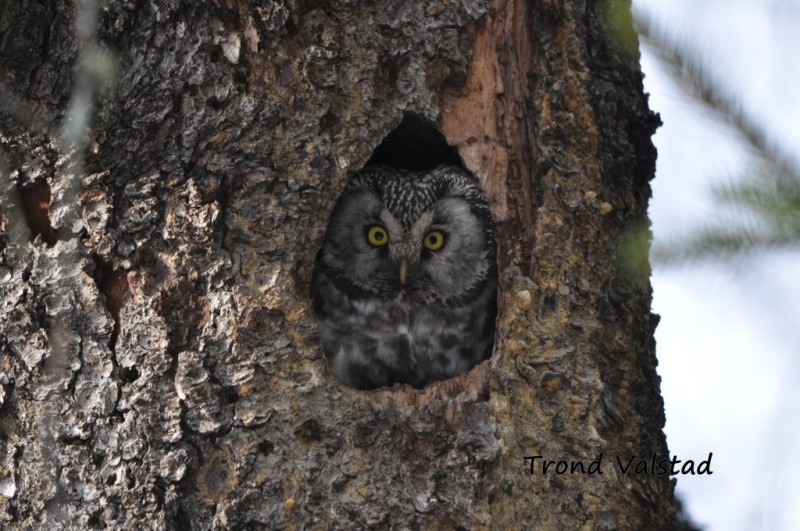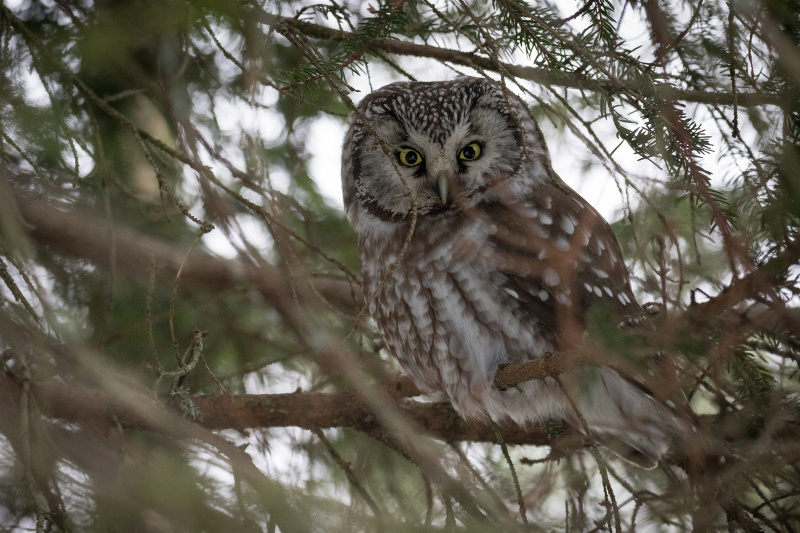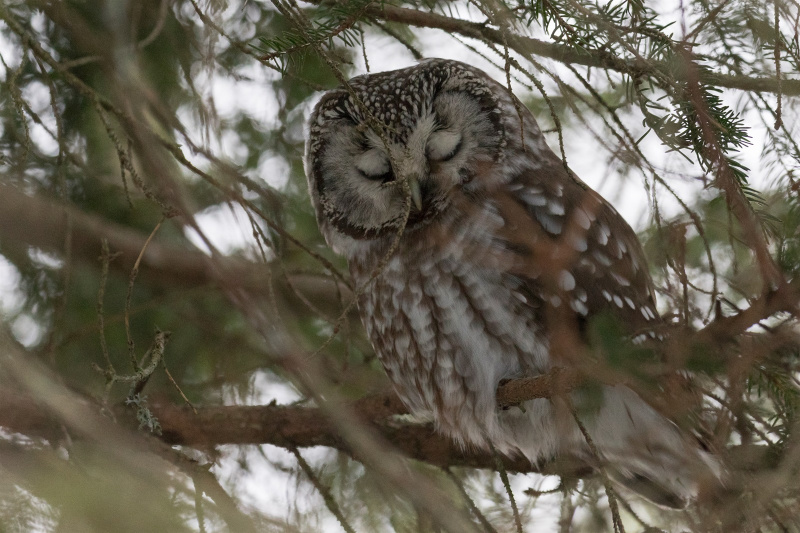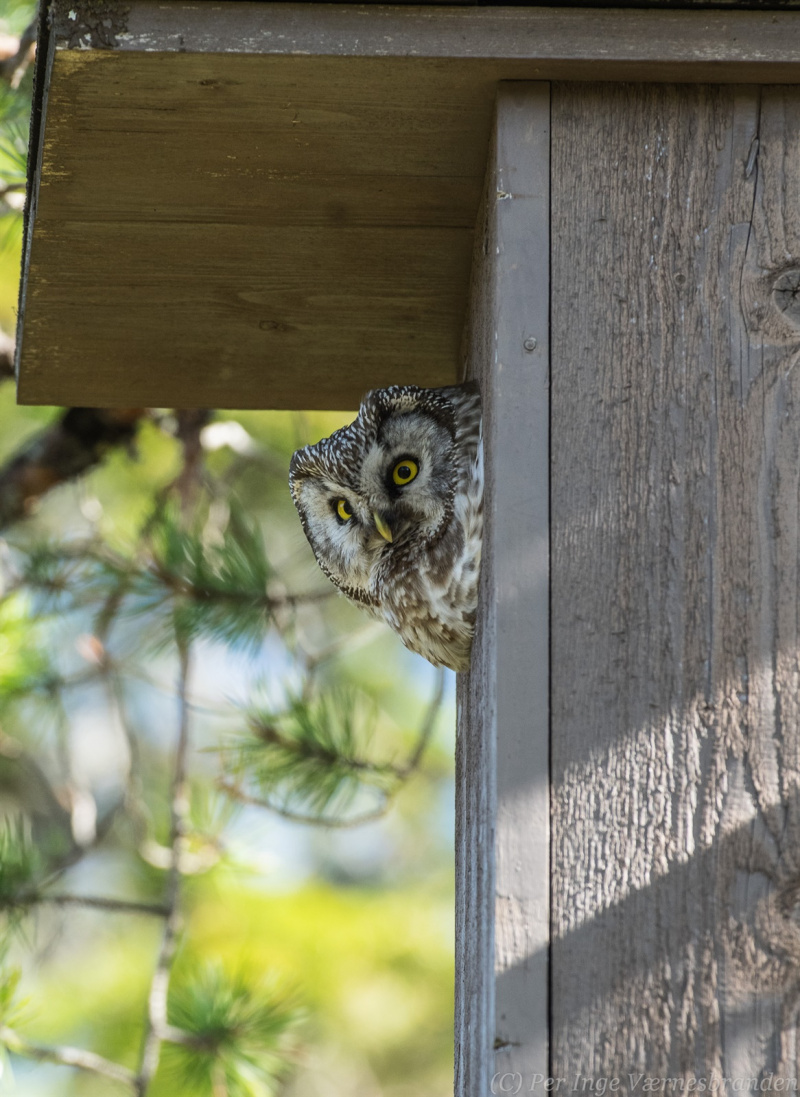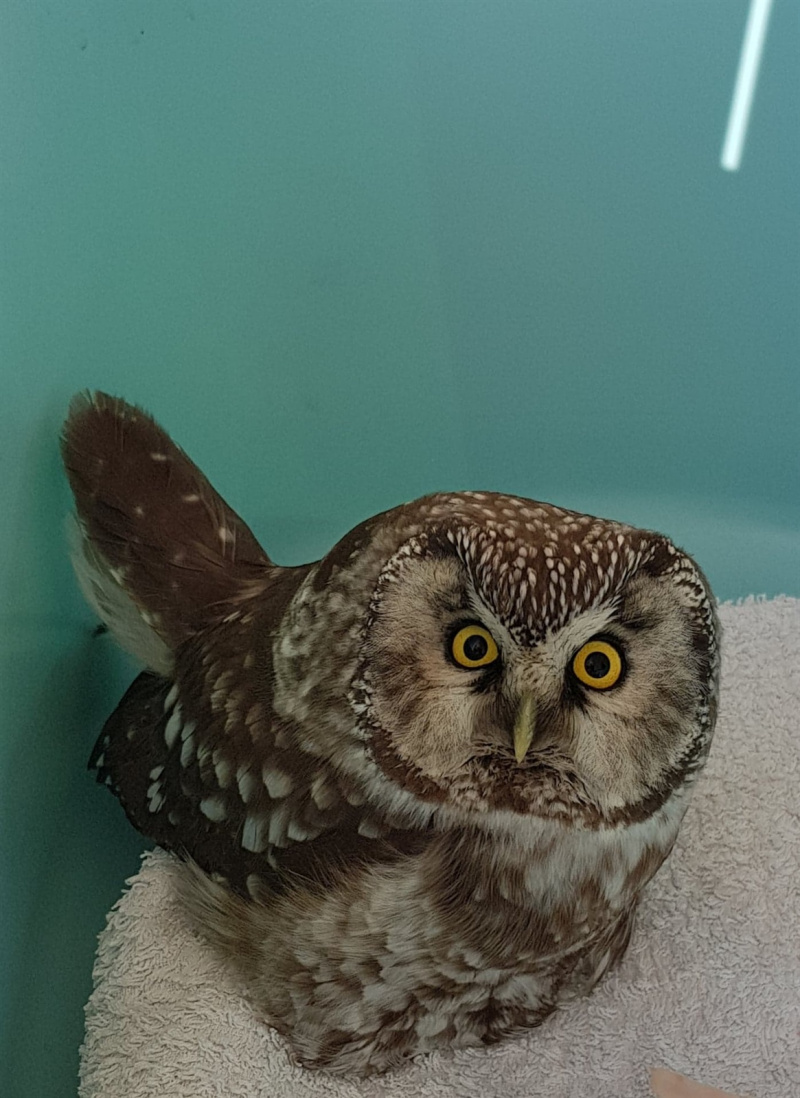Carrion Crow (Corvus corone)
Boreal Owl (Aegolius funereus)
Very similar to Hooded Crow, apart from the all black plumage. Easily confused with young Rooks, since these lack the naked bill base and baggy trousers of adults. Carrion Crow differs from Rooks by deeper bill with a more curved upper mandible (bill of Rook conical). The wings are evenly broad, not more narrow closer to the body (difficult to judge). Carrion Crow shows no hint of crest, as is often seen in Rooks. Differs from Raven in less deep bill, no neck ruff and rounded, not wedge-shaped, tail.
Sound:Probably impossible to tell from Hooded Crow by sound with certainty, but tends to sound harder, and more mean.
Distribution:Wikipedia: map (se also Xeno-canto below)
Ecology:Birdlife ecology
Links:
Observation.org Latest observations
Image search Flickr NB! May give other species
CCSmall owl with large, square head and spotted upperparts. Eyes bright yellow and facial disks white. "Astonished" expression. Size approximates that of Little Owl, but appears more bulky. Head much larger than in Pygmy Owl, and flight pattern includes interspersed glides without bounding. Seldom seen in the open.
Sound:Song consists of fast series of fairly deep whistling notes "po-po-po-po-po-po-po-po", slightly ascending in pitch, and descending in the last few syllables. Phrase includes up to 25 units. Other calls include a drawn-out, squeaky "kweeat" and some peculiar, explosive sounds with an almost "electronic" quality.
Song:
Distribution:
Wikipedia: map (se also Xeno-canto below)
Ecology:Birdlife ecology
Links:
Observation.org Latest observations
Image search Flickr NB! May give other species
CC
 English
English Albanian
Albanian
 Armenian
Armenian
 Bulgarian
Bulgarian
 Catalan
Catalan
 Croatian
Croatian
 Czech
Czech
 Danish
Danish
 Dutch
Dutch
 Finnish
Finnish
 French
French
 Georgian
Georgian
 German
German
 Greek
Greek
 Hungarian
Hungarian
 Italian
Italian
 Latvian
Latvian
 Lithuanian
Lithuanian
 Macedonian
Macedonian
 Norwegian
Norwegian
 Polish
Polish
 Portuguese
Portuguese
 Romanian
Romanian
 Russian
Russian
 Sami : Lule sami
Sami : Lule sami
 Sami : North sami
Sami : North sami
 Sami : South sami
Sami : South sami
 Scientific names
Scientific names
 Serbian
Serbian
 Spanish
Spanish
 Swedish
Swedish
 Ukrainian
Ukrainian


